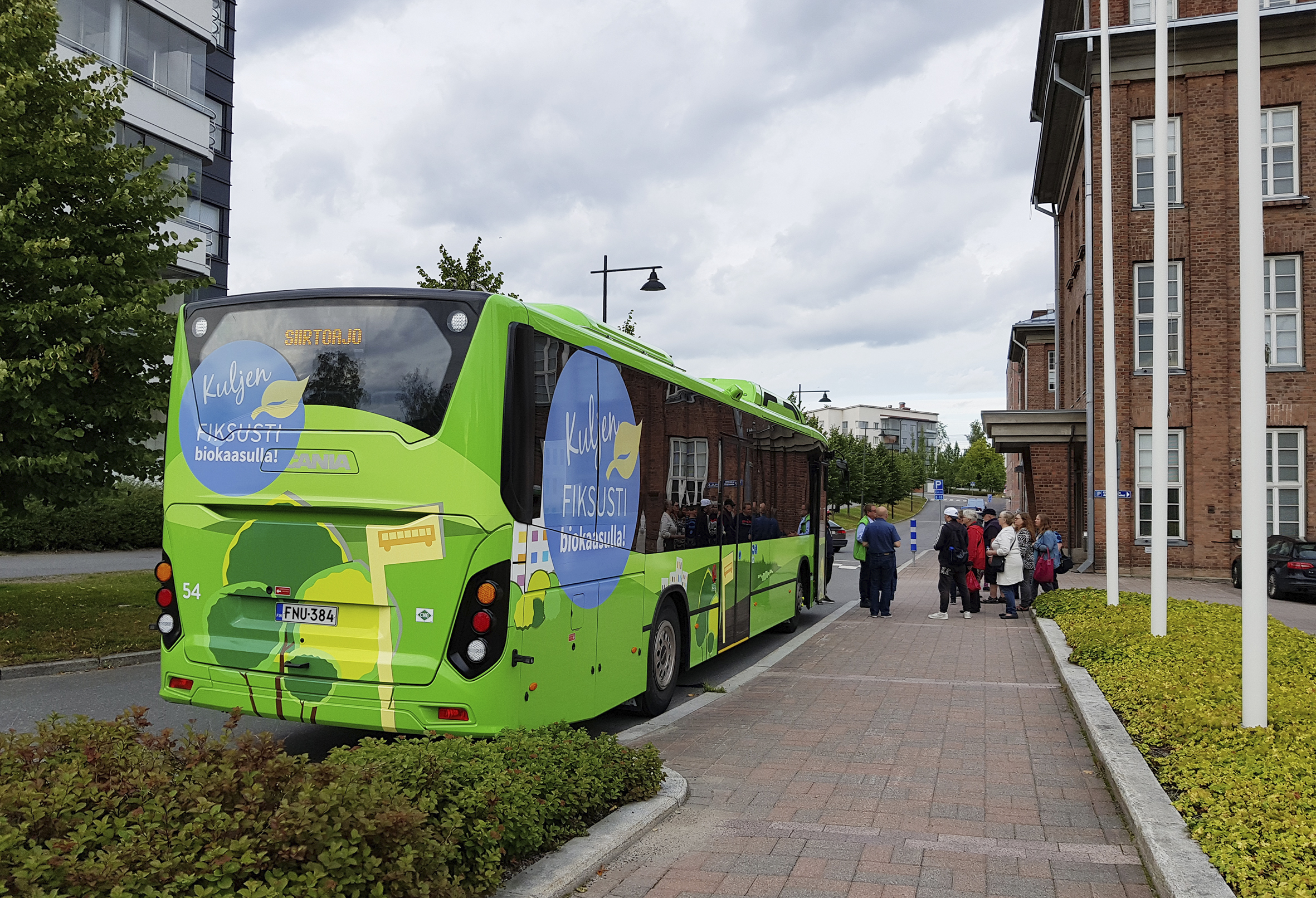In 2019, Jyväskylä’s efforts to introduce circular economy practices in the local area were recognised with an Association of Finnish Municipalities, Finnish Environment Institute and Finnish Innovation Fund Sitra circular economy prize. The city’s commitment to using biogas is perhaps the most high profile aspect of the shift towards greater sustainability. A renewable, local and emission-free source of energy, biogas links everyone within the local authority area with the circular economy. The biogas “ecosystem” has been developed in collaboration with a wide range of partner organisations.
Progress through collaboration
Jyväskylä has a proud track record on sustainability, having been the first local authority in Finland to instigate household organic waste collections in the mid-1990s. Although the City of Jyväskylä has played an important role in facilitating biogas production locally, the ecosystem as a whole is the result of wide ranging collaboration between a number of different organisations. In addition to the city council and commercial biogas producers, a significant contribution has been made by the Regional Council of Central Finland, the Centre for Economic Development, a number of educational institutions and local third sector organisations. Jyväskylä car dealerships too have been closely involved in this joint effort.
Jyväskylä’s public transport is now powered by biogas too. The first biogas-driven buses took to the city’s streets in July 2019, and they have been enthusiastically received by travellers, who have been particularly pleased with how quiet they are compared with their diesel counterparts. A significant proportion of the City of Jyväskylä leased car fleet also now runs on biogas.
Biogas-driven bus in Jyväskylä. Photo: City of JyväskyläThe significance and impact of biogas on the regional economy cannot be overstated. When fossil fuels are replaced with locally produced renewable alternatives, all the economic and employment benefits arising from the shift are felt in the local area. This is in contrast with the economic impacts of natural gas, for example, which is imported from abroad, usually from Russia.
Huge local importance
The City of Jyväskylä plays a significant role in biogas production locally. Along with Laukaa, Muurame and Toivakka it owns the Mustankorkea waste management company, which produces biogas from organic waste like food waste and sewage sludge. A blend of methane and carbon dioxide, biogas is created under anaerobic conditions.
Jyväskylä’s biogas “ecosystem” also includes the local residents as the organic waste they produce is used to generate biogas. Refuse collection vehicles, many of which are powered by biogas, pick up the waste and take it to the waste processing centre, from where it is ultimately passed on to the biogas plant. Biogas can then be transferred from the power plant for use in charging stations, either by pipeline or in pressurised containers. The leftover digestion residues are rich in recycled nutrients and can be processed further. At Mustankorea, these residues are used to create a range of topsoil products.
At the moment, the majority of Finland’s biogas filling stations are located in central and southern Finland. There are a total of three such stations in Jyväskylä. Two of these are locally owned by Mustankorkea, while a third belongs to Nordic gas company Gasum. An additional biogas filling station, run by Metener, a local company, can be found in Laukaa, close to Jyväskylä. Based on Kalmari Farm, Metener has played a vital role in biogas research and development and had a significant role in exporting Finnish expertise further afield. A biogas plant was first set up here in 1998, with the first biogas pump launching in 2002.
In addition to fuel, biogas is also used to generate electricity and heat. The Metener plant provides heating to all nearby houses, while Jyväskylän Seudun Puhdistamo Oy generates enough biogas to heat its own premises and power around half of its operations.
Päivi Pietarinen Environmental Director City of Jyväskylä paivi.pietarinen@jyvaskyla.fi

